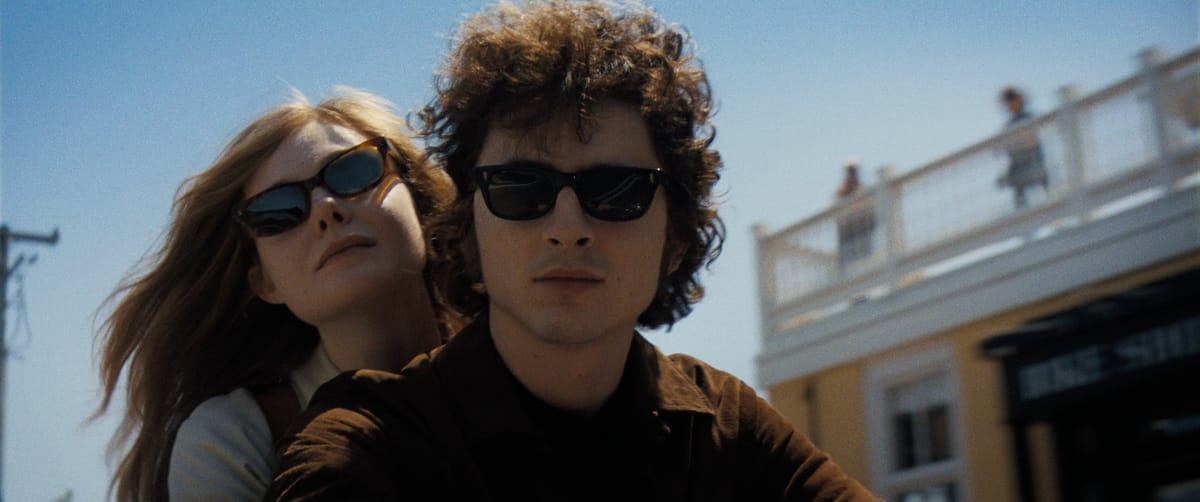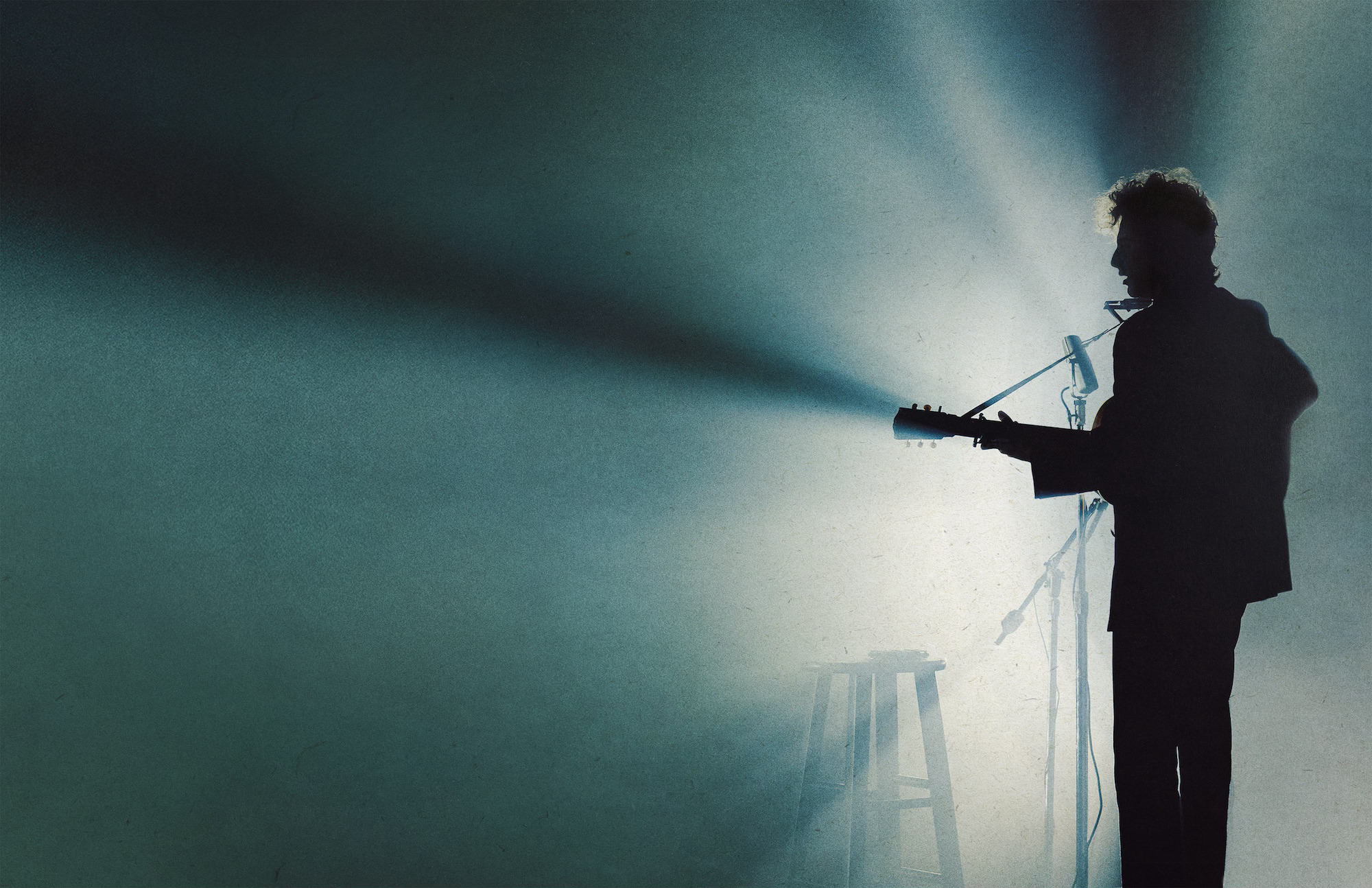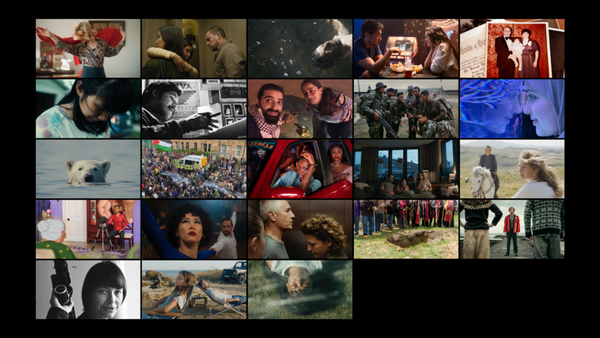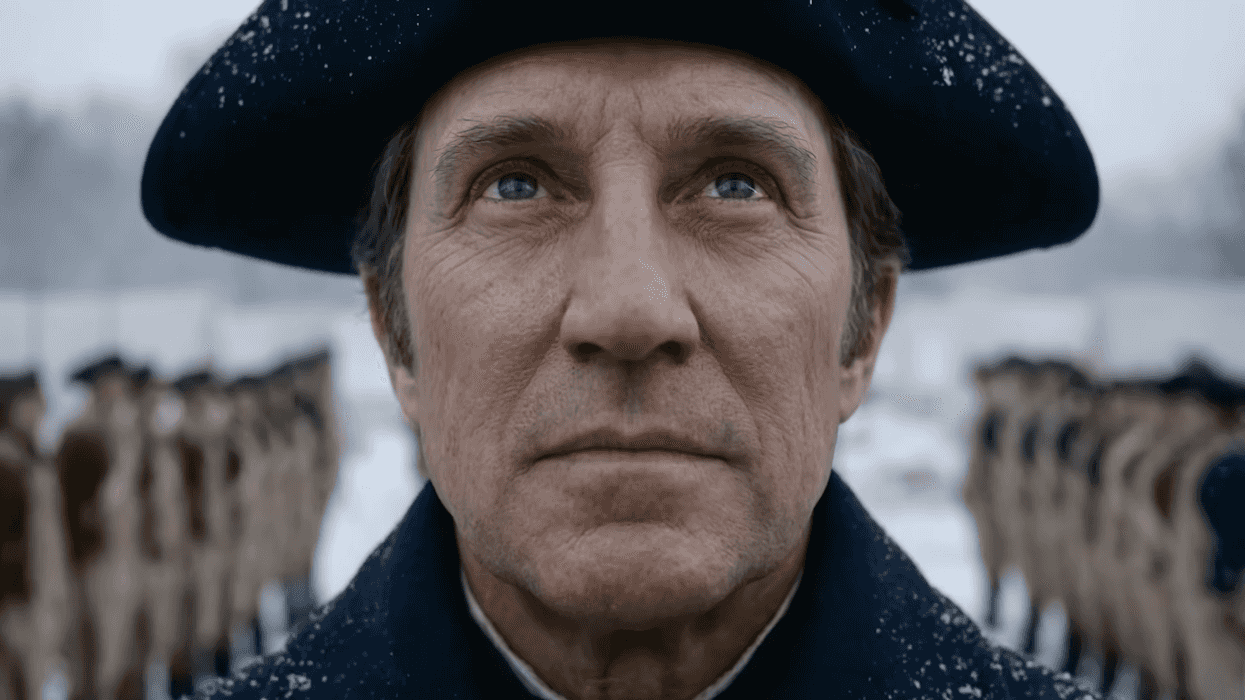‘A Complete Unknown’ Is the Blandest Bob Dylan Biopic Imaginable
James Mangold’s movie feels designed to push Spotify streams to boomers.

When I was a child, my father gifted me a love of two major artists that came to prominence when he was a teenager: The Beatles and Bob Dylan. My adoration of Dylan has led me not only to his vast discography, but also to fascinating documentaries like D.A. Pannebaker’s Don’t Look Back and Martin Scorsese’s No Direction Home. When it comes to putting Dylan in a fictional framework, Todd Haynes set a remarkably high bar with his 2007 film I’m Not There, which sought to put Dylan’s various personae into different characters played by different actors. While none of these characters were named “Bob Dylan,” the film felt like an honest way to capture Dylan on film. However, it’s also not an easy movie that plays to the familiar biopic beats. A person who liked James Mangold’s 2005 biopic of Johnny Cash, Walk the Line, may find themselves bewildered by I’m Not There.
Mangold now returns to the music biopic with A Complete Unknown, a movie that appears to be at a total loss on how to tell Dylan’s story, so it attempts to tell everything that happened to Bob Dylan (Timotheé Chalamet) in the 1960s. A Complete Unknown tries to string together Dylan’s popularization of folk music, his relationship with legendary folk artists Woody Guthrie (Scoot McNairy) and Pete Seeger (Edward Norton), fraught romances with Joan Baez (Monica Barbaro) and Sylvie Russo (played by Elle Fanning and based off of Dylan’s real-life girlfriend Suze Rotolo whose name was changed to preserve her privacy), and his contentious relationship with fame and musical identity.
It’s a bunch of Dylan stuff that you could gather from his Wikipedia page, and Mangold never appears to have an artistic vision for approaching this story. Perhaps that shouldn’t be too surprising since Mangold is a journeyman director. He’s one of the better journeymen, and I won’t discount his ability to give a western noir sheen to Wolverine in 2017’s Logan or the pulse-pounding excitement he delivered in 2019’s Ford v Ferrari. But Bob Dylan is an artist and one who demands artistic interrogation. Furthermore, as A Complete Unknown stresses, he’s a transformational artist. Dylan looms large over 20th century American music, and it’s why he gets a movie as opposed to his lesser-known contemporaries. Checking off boxes for Bob Dylan doesn’t fit such a slippery and unique person.

Mangold never goes to the trouble of explaining the value or context of the transformation Dylan wrought. We don’t grasp the folk scene Dylan enters into (you would be well served by checking out the Coen Brothers’ Inside Llewyn Davis for that), nor do we grasp the tension between Dylan’s movement away from folk into rock beyond, “The folk music people don’t care for rock music.” Dylan’s music never feels particularly alive here; instead, it feels like an artifact behind glass meant to be admired yet rarely understood. Every music number is Dylan playing a song, the audience looking at him in awe, and then crosscutting between those two shots until the song finishes. There’s no insight here; the song ends, and you think, “I too like the music of Bob Dylan.”
All this reverence ends up diminishing Dylan because we’re not gaining a greater understanding of him or his music. Furthermore, this white-gloved treatment (it’s a movie set in New York in the 1960s music scene where no one does drugs; Dylan introduced pot to The Beatles in 1964!) makes Dylan a dusty relic of a bygone generation. Dylan may be a jerk to everyone in his life, but the undercurrent is always that we know he came out on top, so burning Seeger, Rotolo, and Baez never carries much weight. There’s an end-justifies-the-means rationale to Dylan’s actions, and if Dylan is rude or duplicitous, that’s just because he’s a genius. Such an approach is a poor argument for artistry and a facile understanding of any artist.
Some may glom onto Chalamet’s performance as Dylan, but even here, the actor falls into the familiar biopic trap where he’s merely doing an excellent impression. Because the movie requires little depth or shading in its portrayal of Dylan, all Chalamet has to do is sing like Dylan, look like Dylan, and mimic his documented mannerisms, and that’s a wrap. It’s not a challenging performance for the actor, and it pales to the character work we saw from him earlier this year as the morally doomed Paul Atreides in Dune: Part Two. Casting Chalamet for Bob Dylan instead feels of a piece with every choice in this movie—finding the safest route forward in telling this story.
If Mangold and co-writer Jay Cocks had made some hard choices, they could have focused on any aspect of Dylan’s life and drilled down, which would allow an actor like Chalamet to explore the character in a new and unexpected way. They could have stripped away all the love triangle plots to focus on the fraught relationship between Dylan and Seeger, and how Dylan felt he had to turn away from a mentor and inspiration to chart a new course. But it’s only in the final twenty minutes that the movie seems to realize that Dylan’s choice to go electric might carry some repercussions for his personal relationships. In an attempt to tell the most Dylan stories of the 1960s, A Complete Unknown fails to tell any of them particularly well.
The Bob Dylan of A Complete Unknown is unknown only because Mangold never seemed particularly curious about him. The movie reveres Dylan and works backwards from there, and that’s a great way to sell concert tickets, albums, and other paraphernalia that will profit Dylan and Sony Music Entertainment. But it’s a poor approach for seriously engaging with an artist or opening them up to anyone not already familiar with their work. I imagine older viewers will bop their heads along to the tunes they recognize. For younger audiences, I can only hope they have a dad as good as mine that gets them hooked on Dylan from an early age because they’ll find nothing to create that spark in A Complete Unknown.
Matt Goldberg is a film critic living in Atlanta. If you enjoyed this review, check out his newsletter, .
Stuff David Chen Has Made
- On The Filmcast, we reviewed Wicked, a movie that we all enjoyed to varying degrees.
- On Decoding TV, we discussed the new Star Wars series Skeleton Crew, which I’m trying really hard to enjoy but having a difficult time with so far.
- Also on Decoding TV, we discussed the first few episodes of Interior Chinatown, which is bold, original, and culturally relevant. Listen here.



